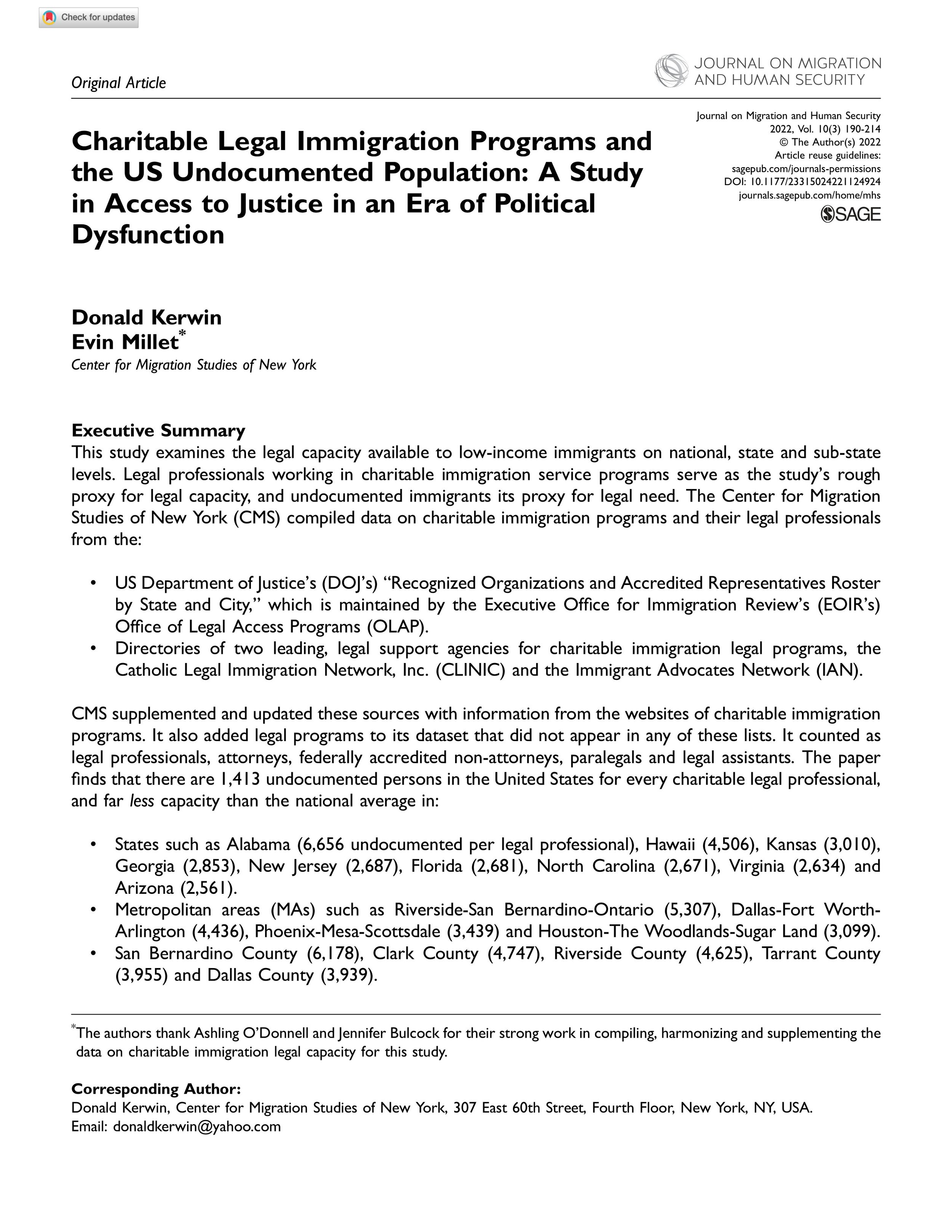By The Vera Institute of Justice
We need a federally funded universal legal defense service for immigrants — one that is deliberately modeled on the criminal federal defender system, which, while not perfect, is generally regarded as more successfully realizing the values of high-quality, appropriately funded representation than its state counterparts. This service should provide universal, zealous, and person-centered legal defense to all immigrants in any immigration proceedings. The Vera Institute of Justice (Vera) makes this recommendation based on years of experience building and managing national immigrant legal defense programs. A federal defender service built on these core values is effective and achievable, and it would help ensure that the lives, liberty, and community health of immigrants are given full and equal protection under the law, regardless of status. There is an urgent need for a federal defender service for immigrants because most immigrants are unrepresented, and the stakes in immigration proceedings are so high. Deportation can result in physical exile from home, separation from family, loss of income, and even forcible return to conditions of persecution, violence, torture, or death in a person’s country of origin. But immigrants are not entitled to publicly funded counsel in these proceedings. Currently, there are 1.25 million pending cases in the immigration court system, and people in more than 500,000 of those lack legal representation. The lack of representation is particularly staggering for people subjected to immigration detention, where over the past five years, 70 percent have had no counsel. The stakes in immigration proceedings are extraordinary: the U.S. Supreme Court has described them as no less than “both property and life, or of all that makes life worth living.”
New York: Vera Institute of Justice, 2021. 4p.



